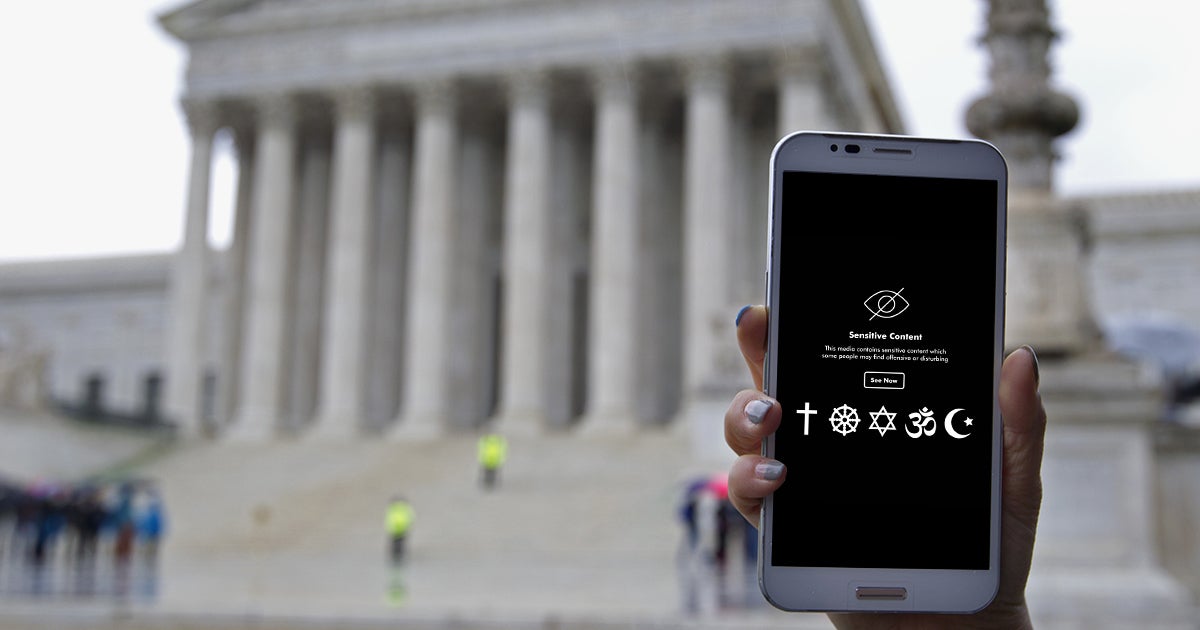
Logan Tantibanchachai • 6 min read
This week, the U.S. Supreme Court unanimously ruled that Texas and Florida social media transparency laws need further review.
The ruling involved two consolidated cases: NetChoice, LLC v. Moody and NetChoice, LLC v. Paxton. In these cases, Texas and Florida were asking for social media companies to be transparent about their content standards and to apply them fairly for all users.
The Supreme Court held the lower courts didn’t properly evaluate whether the laws violate the First Amendment. This means the cases will be sent back to lower courts to reconsider the constitutional questions.
“The judgments are vacated, and the cases are remanded, because neither the Eleventh Circuit nor the Fifth Circuit conducted a proper analysis of the facial First Amendment challenges to Florida and Texas laws regulating large internet platforms,” wrote Justice Elena Kagan in the majority opinion.
Because of the importance of these cases to religious expression online, First Liberty filed a friend of the court (amicus) brief on behalf of The Babylon Bee, a conservative news satire outlet, as well as its sibling Not the Bee, a Christian news website. We filed it with the help of Consovoy McCarthy PLLC and the Antonin Scalia Law School Supreme Court Clinic.
The Texas and Florida state laws are designed to increase transparency and accountability for Big Tech companies. The laws do not infringe on the free speech rights of corporations. In fact, the laws allowed them to create their own user standards. The laws do not mandate what the social media companies must accept on their platform. The only thing these laws required was that social media giants publish their user standards and then apply them fairly, which is all consistent with federal law and the First Amendment.
Our attorneys wrote:
“[T]hese laws advance core First Amendment values by promoting the free exchange of ideas and by protecting religious viewpoints, among others, from censorship. And they restore trust and consumer confidence in social media.”
These laws are designed to protect companies like The Babylon Bee and Not the Bee, which have both been negatively impacted by online censorship. For example, The Babylon Bee has been censored and “shadow banned”––when a company stops showing posts to other users—which in turn hampers web traffic to Not the Bee.
For media companies like the Babylon Bee, the decision gives them another opportunity to make sure Big Tech doesn’t censor or shadow ban their content. Social media companies being transparent and evenly applying their standards would greatly help American consumers. Upholding these laws would help prevent censorship of conservative and religious voices online.
All in all, the Supreme Court’s ruling means that the fight for free speech and religious expression online is not over yet. There’s a lot of work ahead to stop censorship of religious content in the digital space.
First Liberty will continue to defend and fight for Americans so they can freely live out and express their faith without being censored. We still have a lot of work to do—and we need your continued support to stop those who are trying to destroy America’s cherished values of free speech and religious freedom.
Read More:
The Hill: Supreme Court punts on Texas, Florida social media laws
Reuters: US Supreme Court throws out rulings on state laws regulating social media
Forbes: Supreme Court Throws Out ‘Social Media Censorship’ Cases In Florida And Texas
New York Times: Supreme Court Declines to Rule on Tech Platforms’ Free Speech Rights